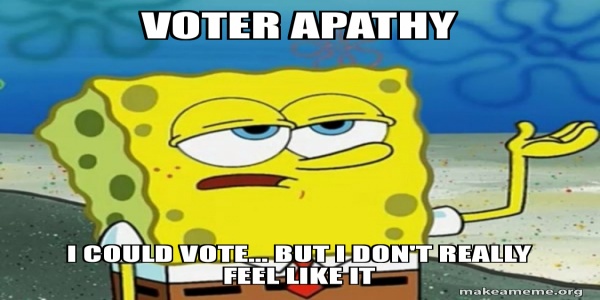Faster Internet makes bad citizens?
It would explain many things…
A few months ago, three italian researchers published a summary of their latest paper, making a really interesting argument:

“In the UK, the diffusion of broadband has resulted in a decrease in civic and political participation. On the other hand, it does not seem to have affected the strong ties among relatives and friends. The phenomenon could also explain the rise of populism."
“A one standard deviation reduction in the distance between the phone line of the people interviewed for the study and the closest network node, which is a good indicator of a faster connection, caused the likelihood to participate in membership activities to decrease by 4.7 percent between 2005 and 2017. For political parties and trade unions, the decrease in the probability of involvement rises to 5.1 percent."
Faster internet equal LESS participation? Interesting!
I find that thesis really intriguing. I wonder if there are other factors at play, of course. For example, it would be interesting to see the relation between participation and average income, or likely social status, which are also related to residence. Neighborhoods with richer residents tend to get faster connectivity before other areas, simply because there are more people able to pay for it.
But it seems plausible, because after all it’s just another face of what’s usually called “information overload” isn’t it? Banalizing, wherever both content producers and their audiences are stuck with a 56K connection, they will exchange little content, of the highest possible quality, usually small plain text or pictures as in the early Usenet days.
But where the baseline is a 10MB/s ADSL connection and fiber is coming, it will be much easier, that is almost unavoidable, to go bulimic, filling pipes and brains with with kitten videos, long ramblings about all sorts of conspiracies and, of course, lots of porn.
For the record, I cannot find it right now, but I did see a while ago a comparison of far-right and “mainstream” news websites in the US, which pointed out that the former were much quicker than the latter to load, even on the dial-up lines that still are the only options in many rural areas. Connections left as exercise for the reader.
Who writes this, why, and how to help
I am Marco Fioretti, tech writer and aspiring polymath doing human-digital research and popularization.
I do it because YOUR civil rights and the quality of YOUR life depend every year more on how software is used AROUND you.
To this end, I have already shared more than a million words on this blog, without any paywall or user tracking, and am sharing the next million through a newsletter, also without any paywall.
The more direct support I get, the more I can continue to inform for free parents, teachers, decision makers, and everybody else who should know more stuff like this. You can support me with paid subscriptions to my newsletter, donations via PayPal (mfioretti@nexaima.net) or LiberaPay, or in any of the other ways listed here.THANKS for your support!